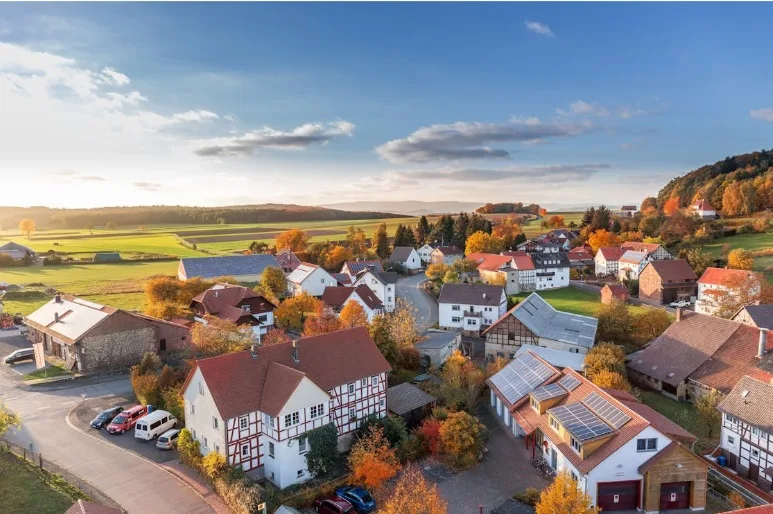Introduction
Retirement communities are an increasingly popular choice for seniors looking for lifestyle-focused housing options in their golden years. They provide an opportunity for socialization, recreation, and convenient healthcare. With the aging population, it’s essential to design retirement communities that reflect the unique needs of older adults. While functional elements such as accessible bathrooms and walkways are necessary, design elements that cater to both physical and emotional well-being should also be considered.
This blog post explores the important factors, architectural design elements, technology integration, and community engagement and inclusivity that make up the perfect retirement community.
Factors to Consider in Designing Retirement Communities
Retirement communities should not just be functional but also aesthetically pleasing and tailored to the physical and emotional needs of seniors. Five essential factors to consider are:
- Accessibility: Make sure that the environments are convenient and safe for people with physical limitations.
- Comfort and Coziness: Create a comfortable atmosphere that doesn’t feel clinical or institutional, with communal spaces and outdoor areas to stimulate social interaction.
- Healthcare Amenities: A full range of health services, from preventative to emergent care, should be available to seniors who require varying degrees of support.
- Life Enrichment Programs: Offer a wide array of activities that cater to seniors’ interests, from vocational training to cultural and historical tours, providing a sense of purpose and enjoyment.
- Sense of Community: Foster a sense of belonging by providing opportunities for community involvement and self-expression for the residents.
Architectural Design Elements for Retirement Communities
The physical environment contributes to seniors’ social and psychological well-being. Best retirement village architect Sydney utilizes five architectural design elements to address the unique needs of retirement communities.
- Light: Well-designed lighting reduces eye strain, improves moods, and enhances safety in communal spaces and individual units.
- Accessible living space: Build housing units, walkways, and other structures that cater to the mobility limitations of seniors and include amenities to assist independence.
- Sound control: Create quiet spaces for privacy and noise-canceling for each housing unit to ensure a peaceful and private life for residents.
- Safe design: Ramps, railings, and low threshold showers are just a few of the designs to ensure safety for residents to move around.
- Multi-functional spaces: Common areas should double up to serve multiple purposes, including social events, group activities, and therapy sessions.
Technology Integration
Technology is an essential element in designing retirement communities. Seniors are increasingly tech-savvy and require the same access to technology that they enjoy in their homes. Five technology integrations for retirement homes include:
- Virtual Reality: Virtual reality technologies create immersive experiences that seniors can enjoy, stimulating memory and distracting players.
- Ambient assisted living: Smart devices can be integrated into each housing unit to assist seniors suffering from physical or cognitive decline.
- Telehealth: Telehealth has become a crucial tool in providing essential health services to seniors.
- Senior-friendly tech: The right technology depends on the specific needs of seniors, and the design of technology like voice-activated controllers or smart thermostats must be senior-friendly.
- Social media: Social media platforms provide seniors an opportunity to connect with the broader world; thus, designing internet cafes, and web applications with trendy content would be necessary.
Community Engagement and Inclusivity
Community engagement and inclusivity are significant factors in designing the perfect retirement community. Here are five elements of designing for community engagement and inclusivity:
- Emphasis on Diversity and Inclusion: Customize community services to residents’ various backgrounds and interests, considering the socio-economic status, culture, and other primary factors.
- Volunteerism: Retirement homes should support volunteering activities to encourage residents to find meaning and purpose in their lifestyles.
- Inter-generational engagement: Encourage youth to interact with seniors using modern technologies and activities like readings, games, storytelling, and cultural events.
- Sensory stimulation: Mindful and aesthetically pleasing environments create a healthy environment for seniors and stimulate their comfort.
- Strong Community Involvement: An appropriate support system for family and friends assists in creating good relationships with seniors in the community.

Conclusion
Designing the perfect retirement community is essential to cater to the evolving needs of the aging population. It involves more than just functional structures or accessibility. Such communities must incorporate factors that contribute to the well-being of seniors’ physical and emotional needs. The right architectural design elements, community engagement and inclusivity, and technology integration fuel a more comfortable, safe, and enjoyable lifestyle for seniors. With the right combination of factors, retirees can enjoy a comfortable lifestyle that caters to their needs while promoting independence, happiness, and quality of life.





